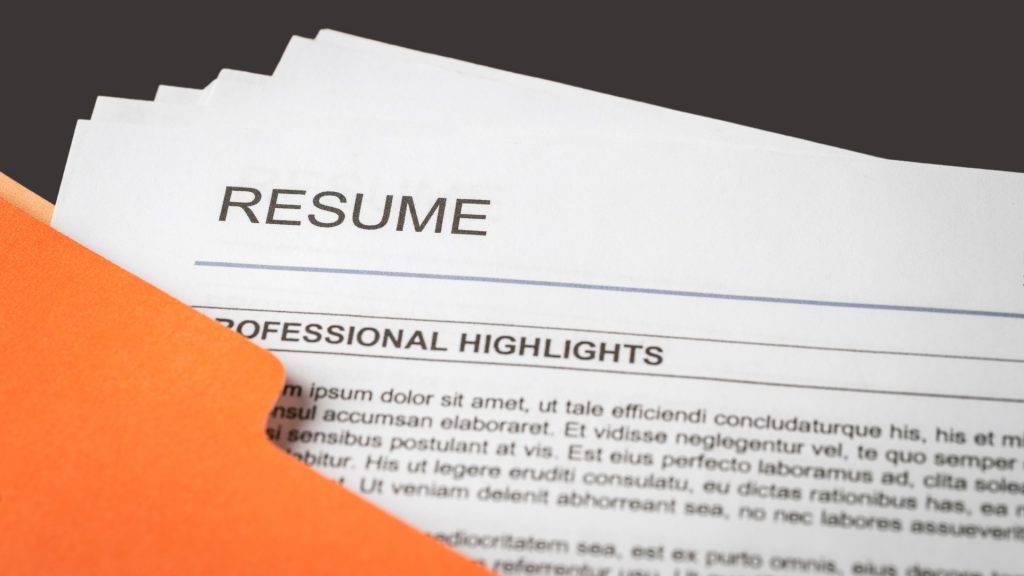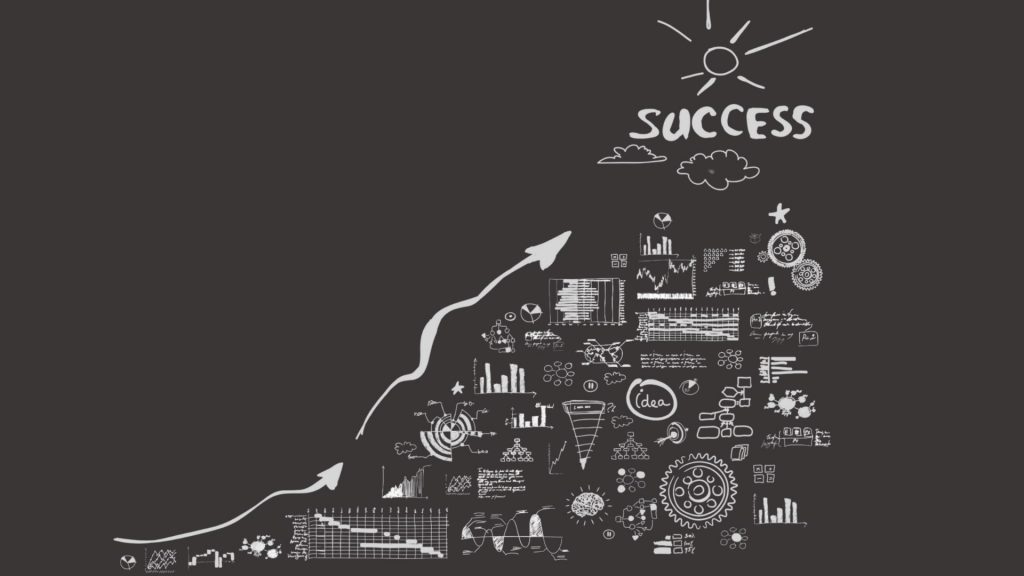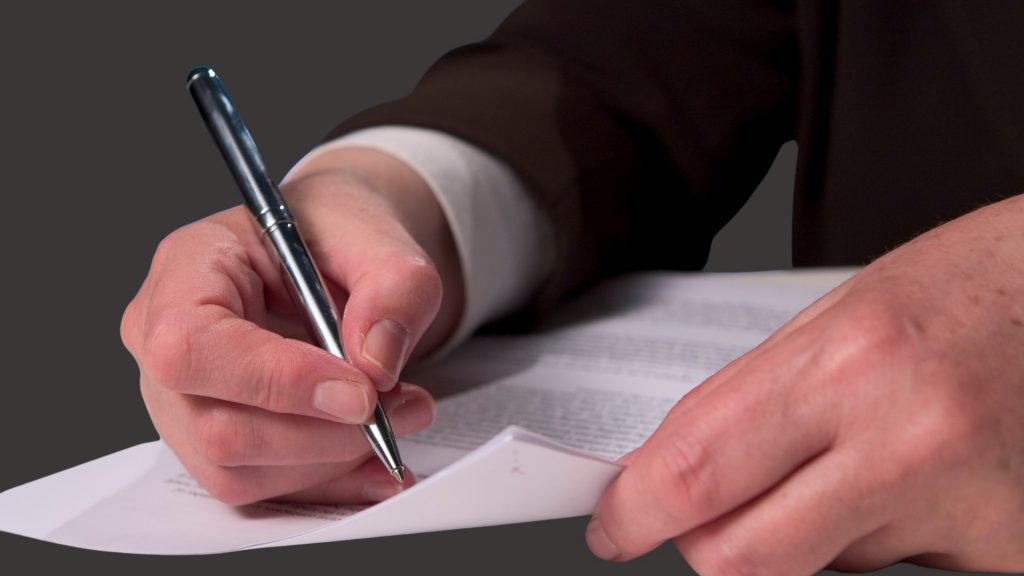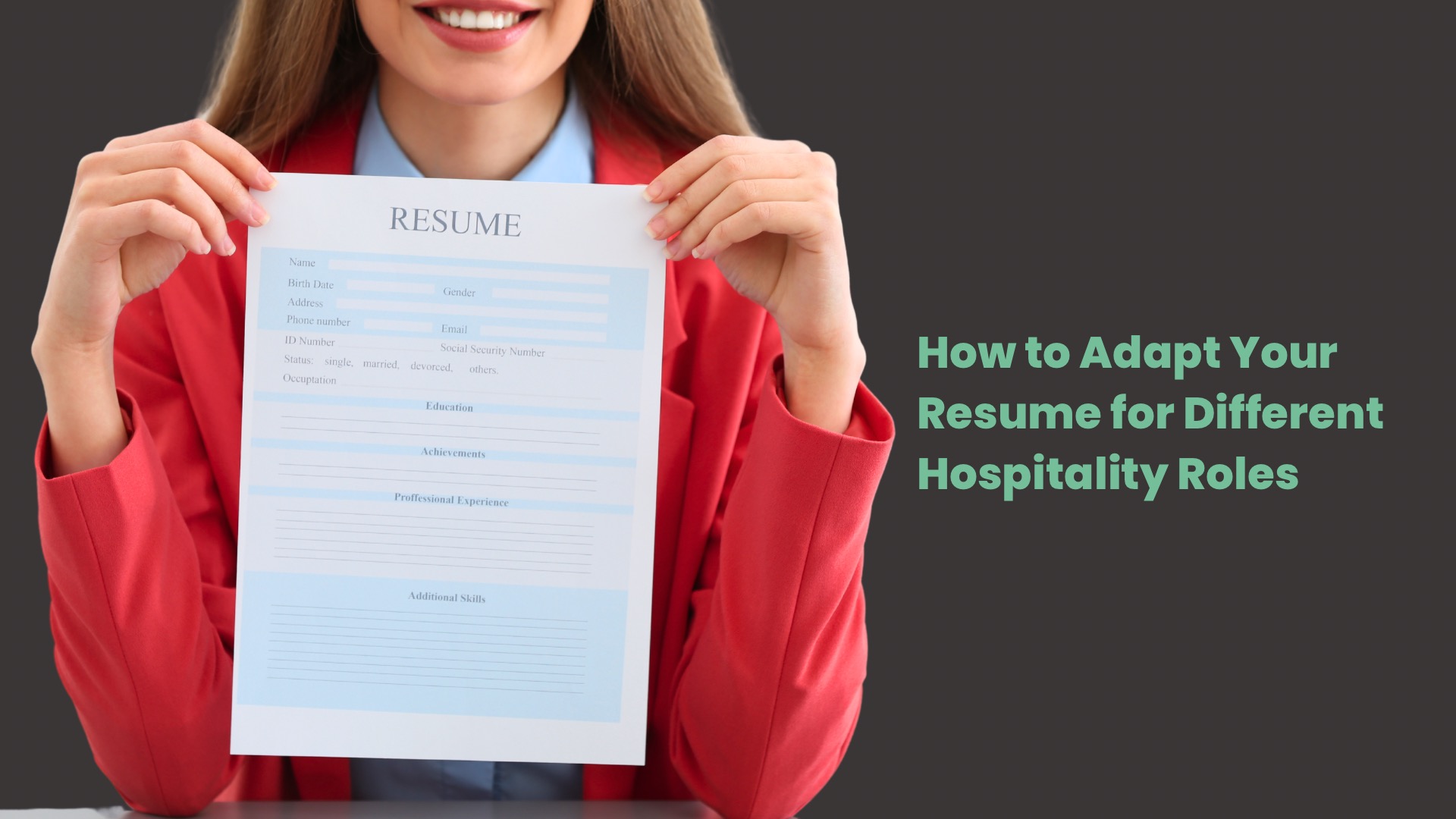In the dynamic and customer-centric world of hospitality, the key to landing your dream job is a well-crafted resume tailored to each specific role you apply for. Whether you’re aiming for a position as a hotel manager, concierge, chef, or front desk agent, tailoring your resume ensures it aligns with the unique demands of each job. Here’s how to adapt your resume for different hospitality roles, increasing your chances of standing out in a competitive job market.
1. Understand the Job Description Thoroughly
Before you start tailoring your resume, it’s crucial to have a deep understanding of the job description. Hospitality roles often have unique requirements, whether it’s customer service excellence for a front desk position or strong leadership skills for a managerial role. Carefully read the job description and highlight the key skills and experiences that are emphasized. These keywords will form the foundation of your tailored resume.

2. Showcase Relevant Experience
Hospitality roles vary widely, so your resume should highlight the most relevant experiences that align with the specific job. If you’re applying for a position as a restaurant manager, emphasize your leadership experience, ability to manage a team, and understanding of restaurant operations. Conversely, for a role like a concierge, focus on your customer service experience, knowledge of local attractions, and ability to handle guest inquiries with efficiency and grace.
Tip: Use a reverse-chronological format if your most relevant experience is recent. If it’s further back, consider a functional or combination format to bring your key skills to the forefront.
3. Customize Your Resume Summary
Your resume summary is one of the first things hiring managers see, so make it count. Tailor this section to reflect the skills and experiences that are most relevant to the job you’re applying for. For example, if you’re applying for a hotel management position, your summary might highlight your experience in overseeing hotel operations, improving guest satisfaction scores, and managing budgets.
Example:
Hospitality professional with over seven years of experience in hotel management. Proven track record of improving guest satisfaction by 20% and reducing operational costs by 15%. Seeking to leverage my expertise in a dynamic hotel environment to enhance guest experiences and drive business growth.

4. Align Your Skills with the Job Requirements
In the hospitality industry, the skills required can vary greatly depending on the role. For example, a chef position might require culinary expertise, menu planning, and kitchen management, while a front desk agent needs strong communication skills, knowledge of reservation systems, and the ability to handle guest requests efficiently.
List your skills in a way that aligns with the job description, placing the most relevant ones first. Include both hard skills, like knowledge of specific software or languages, and soft skills, such as teamwork or problem-solving abilities.
5. Highlight Measurable Achievements
Quantifiable results are a powerful way to demonstrate your impact in previous roles. Wherever possible, include numbers to showcase your accomplishments. For example, if you increased customer satisfaction scores, reduced costs, or boosted sales, make sure to highlight these achievements.
Example:
Led a team of 15 staff members in a busy restaurant, resulting in a 25% increase in customer satisfaction scores and a 10% reduction in food waste.

6. Tailor Your Work History
Your work history should not just list previous jobs but should be tailored to emphasize the experiences most relevant to the hospitality role you’re targeting. For example, if you’re applying for a front-of-house position, detail your experience in guest interaction, reservation management, and handling guest complaints. If a particular job doesn’t align closely with the role you’re applying for, consider condensing it or focusing on the transferable skills you gained.
Tip: Use bullet points to list your key responsibilities and achievements in each role. Start with the most relevant tasks that align with the job description.
7. Optimize for Applicant Tracking Systems (ATS)
Many employers in the hospitality industry use Applicant Tracking Systems (ATS) to filter resumes before they even reach a human. To ensure your resume makes it through, incorporate the exact keywords from the job description into your resume. Avoid overly complex formatting, as it can confuse the ATS, leading to your resume being overlooked.

8. Proofread and Seek Feedback
Finally, ensure your resume is error-free and professionally presented. Spelling and grammar mistakes can detract from your professionalism. After proofreading, ask a colleague or mentor in the hospitality industry to review your resume. They can offer valuable insights and help ensure your resume aligns with industry standards and the specific job you’re targeting.
Conclusion
Adapting your resume for different hospitality roles is essential to showcase your qualifications effectively. By tailoring your experience, skills, and achievements to match the specific requirements of each job, you demonstrate not only your suitability for the role but also your genuine interest in the position. Remember, a well-tailored resume is your ticket to standing out in the competitive world of hospitality and landing that dream job.
Ready to send your CV?
if you are in search of a hospitality job,
recruitment@gp-connect.com





